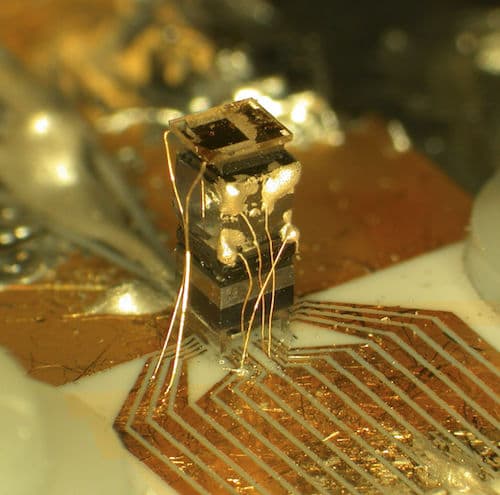ISRO is developing Rubidium Atomic Clock For IRNSS Program
ISRO is developing a Rubidium based atomic clock to be used in its ambitious IRNSS aka Indian Regional Navigation Satellite System program, reports <a href="https://www.thehindu.com/todays-paper/tp-national/tp-tamilnadu/india-developing-atomic-clocks-for-use-on-satellites/article7229190.ece" target="_blank" rel="noopener noreferrer">India developing atomic clocks for use on satellites - The Hindu</a>. Atomic clocks are known world over for their unmatched time-keeping abilities and at CrazyEngineers, we've been following the leading atomic clocks around the world like '<a href="https://www.crazyengineers.com/threads/strontium-atomic-clock-will-keep-accurate-time-till-the-end-of-universe.80190">Strontium Atomic Clock Will Keep Accurate Time Till The End Of Universe</a>', <a href="https://www.crazyengineers.com/threads/jila-strontium-atomic-clock-the-god-of-time-keeping.72863">JILA Strontium Atomic Clock - The God Of Time Keeping</a>. A Rubidium atomic clock is a frequency standard which is economical, compact and one of the most widely used atomic clocks. These atomic clocks have found applications in GPS.
A.S. Kiran Kumar, the chairman of ISRO informed that the IRNSS program requires accurate time-keeping and Rubidium based atomic clock is a perfect fit for the job. The four out of the total seven satellites that will eventually form the IRNSS system currently rely on European atomic clocks. We learned that the Space Applications Center in Ahmedabad and NPL, Delhi have been commissioned to develop the prototypes of the atomic clocks.

Chip Scale Atomic Clock [Image: Wikipedia]
Mr. Kiran Kumar further added that ISRO is planning to make qualified and flight-worthy versions of these atomic clocks. Once the IRNSS-1 series gets replaced after its intended life-span of 10 years; the next generation of the satellite system will have our own, Indian made atomic clock.
Each of the future navigation spacecraft will carry three atomic clocks; an active clock and the other two will stand by. Mr. Kumar further expected that ISRO driven navigation would lead to creation of many entrepreneurs and applications that make use of this technology.
A.S. Kiran Kumar, the chairman of ISRO informed that the IRNSS program requires accurate time-keeping and Rubidium based atomic clock is a perfect fit for the job. The four out of the total seven satellites that will eventually form the IRNSS system currently rely on European atomic clocks. We learned that the Space Applications Center in Ahmedabad and NPL, Delhi have been commissioned to develop the prototypes of the atomic clocks.

Chip Scale Atomic Clock [Image: Wikipedia]
Mr. Kiran Kumar further added that ISRO is planning to make qualified and flight-worthy versions of these atomic clocks. Once the IRNSS-1 series gets replaced after its intended life-span of 10 years; the next generation of the satellite system will have our own, Indian made atomic clock.
Each of the future navigation spacecraft will carry three atomic clocks; an active clock and the other two will stand by. Mr. Kumar further expected that ISRO driven navigation would lead to creation of many entrepreneurs and applications that make use of this technology.
0
